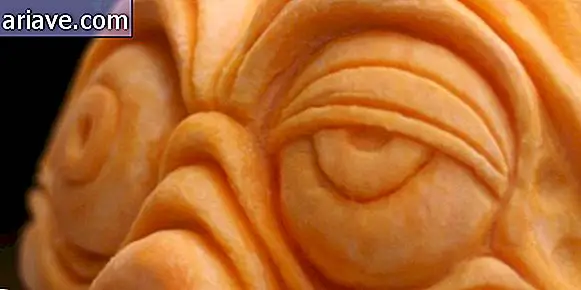Meet the rare disease that causes people to self-abuse
After years and years of research, scientists know that small genetic changes can lead to terrible diseases. This is the case with Lesch-Nyhan Syndrome (SLN), which is caused by a mutation on the X chromosome that causes patients, among other symptoms, to self-mutilate.
The disease mostly affects men, with only one woman who has suffered from the syndrome since it was discovered in 1964. Women, however, can carry the gene with the disease.
This gene suffers from the absence of an enzyme called hypoxanthine guanine phosphoriboxyltransferase (HGPRT), which is critical for cell function. In a healthy cell, adenine and guanine (which make up DNA) are expected to be broken down by HGPRT. Lacking this enzyme, these molecules break down into uric acid.
In turn, uric acid irritates the cells and causes crystals to appear in the urine, which are the famous kidney stones. The presence of these crystals is one of the main factors for the diagnosis of Lesch-Nyhan Syndrome associated with self-mutilation.
Uncontrollable impulses
Another striking feature of SLN is the change in patient behavior, which eventually causes the person to bite and chew on the lips, tongue and fingers. Uncontrolled, the injuries look quite unpleasant. Although experts have discovered new information about the disease, they still cannot explain why this behavior change occurs, but they have some theories.
The simplest explanation is that people bite as a response to the irritation that uric acid causes in cells. Another theory argues that the effects of uric acid on the developing brain result in a lack of dopamine and supposedly injuries would cause dopamine to release into the brain. This means that a simple bruise on the face or hands would cause a feeling of well-being that would lead to more and more mutilation.

Finally, some argue that Lesch-Nyhan Syndrome is the opposite of Parkinson's Disease, as Parkinson's patients cannot initiate their actions, while those suffering from SLN cannot fail to practice the disease. that comes to their minds. So if they think about biting themselves, they will do it, even if it is against their will.
Scientists generally believe that there is a psychological component behind the mutilations. In this sense, one of the most common treatments for compulsive bites is the complete extraction of teeth. However, individuals who undergo this procedure stop biting but scratching their faces. Something still unknown causes them to continue to hurt themselves.
Women with a family history of the disease can be tested before pregnancy to see if they carry the gene. However, Lesch-Nyhan Syndrome has no cure yet, so patients only have their symptoms under control.











